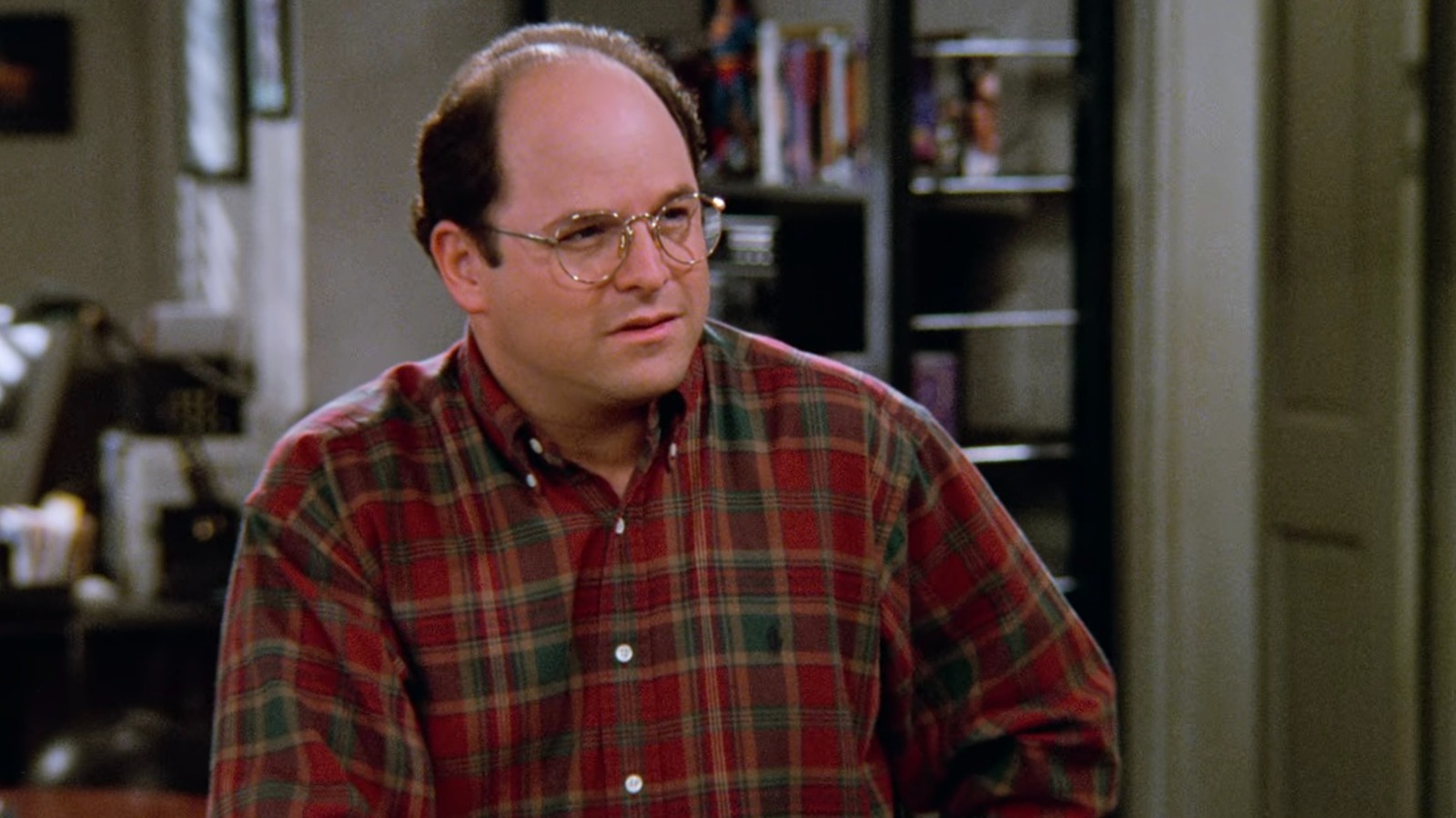Bussiness
Opus College of Business Faculty Share Research in Takeover of NPR’s Academic Minute – Newsroom | University of St. Thomas
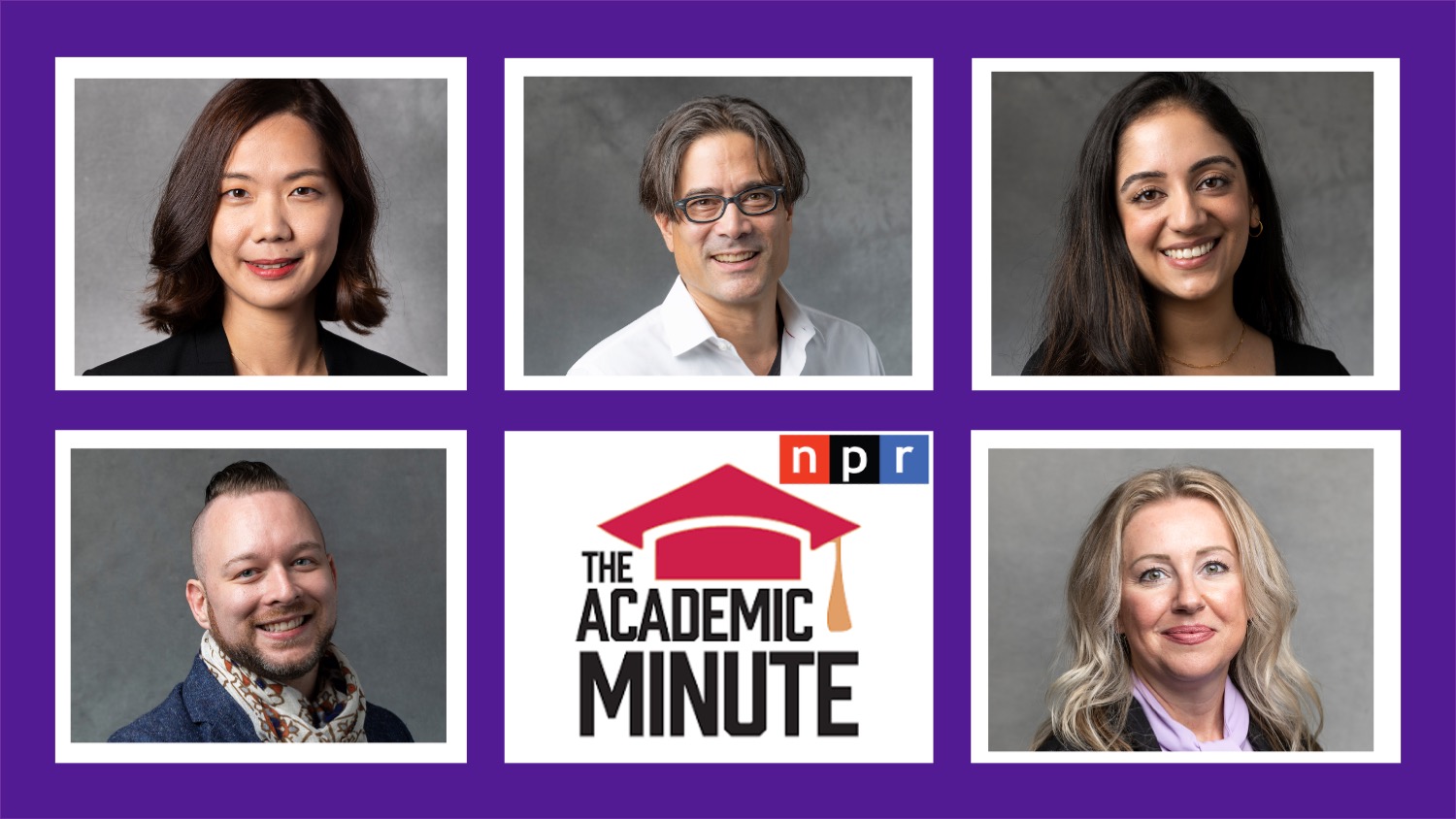
During the week of May 13, five faculty from Opus College of Business at the University of St. Thomas discussed their research on NPR’s “The Academic Minute” series. The daily segment features researchers from schools across the globe. In the Opus College of Business’ takeover, faculty shared their findings to help listeners better understand the world.
Shinwon Noh: Pathways of Peer Influence on Major Choice
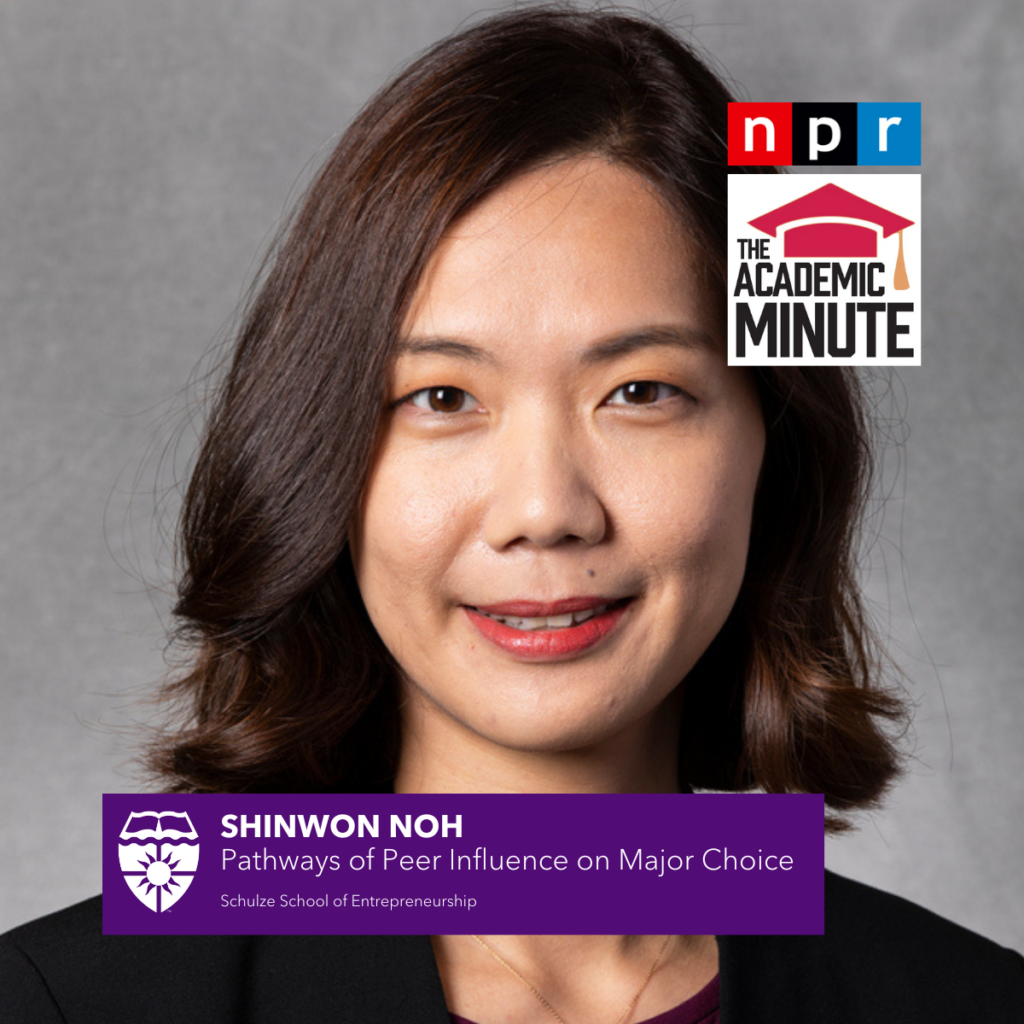
Dr. Shinwon Noh, assistant professor in the Schulze School of Entrepreneurship, shares her analysis on the influence peer pressure has on one’s choice of major. In her research, Noh compared distinct peer types, such as close friends, study partners, and those held in high esteem to observe the peer influence effects on major choice. She found that students are most likely influenced in their choice of major by the students they spend the most time with. “Peers do play a significant role in college major choice,” Noh concluded, “and we identify the pathway of that peer influence, which is spending time with peers.”
Mahak Nagpal: Technosolutionism
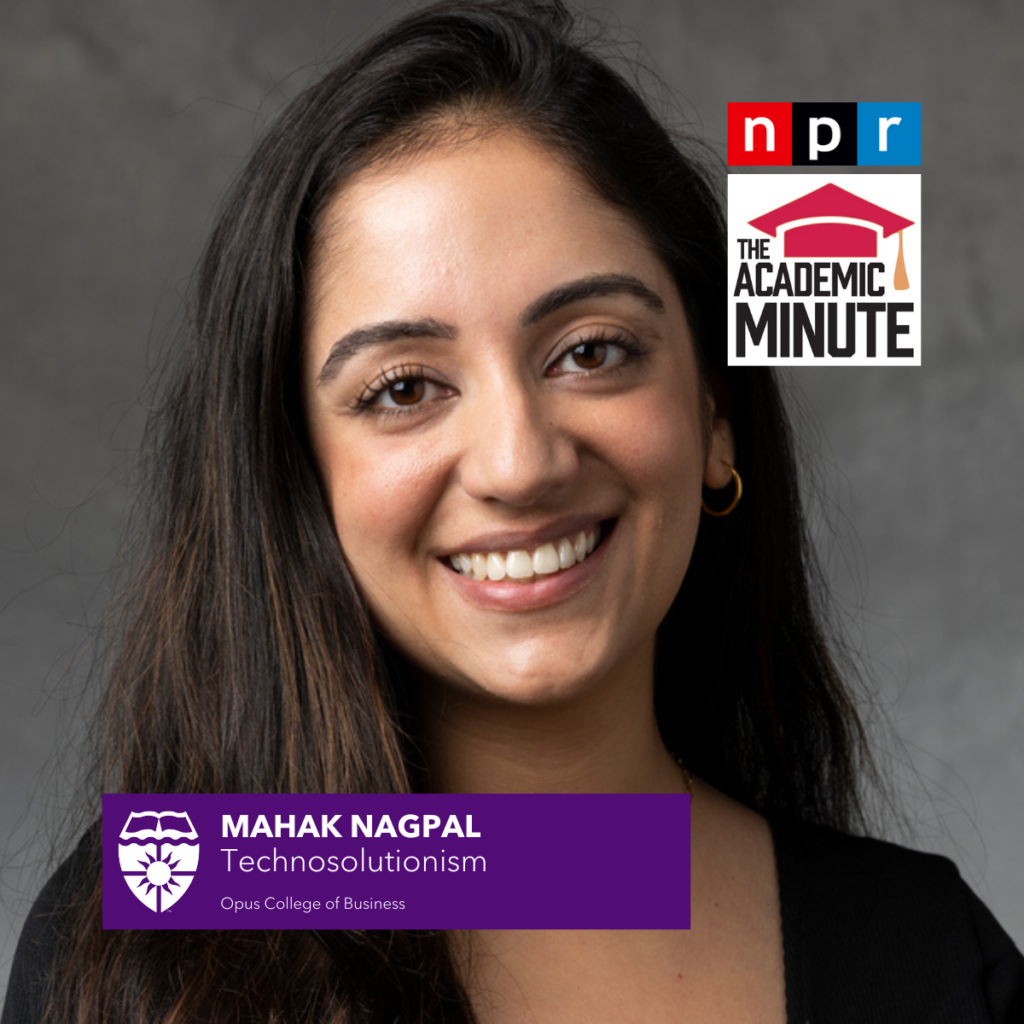
Dr. Mahak Nagpal, assistant professor in the Department of Ethics and Business Law, studies the consequences of the growing belief that AI can solve society’s most difficult problems. In her research, Nagpal examines how society might be overestimating the potential of AI, especially at the expense of human capabilities. She emphasizes how technology should not be viewed as the only solution to problems. “Recognizing the benefits that technology can provide, while having a healthy understanding of its inherent limitations, is key to being able to use technology as a force for realistic good,” Nagpal stated.
Christopher Michaelson: Work Worth Living
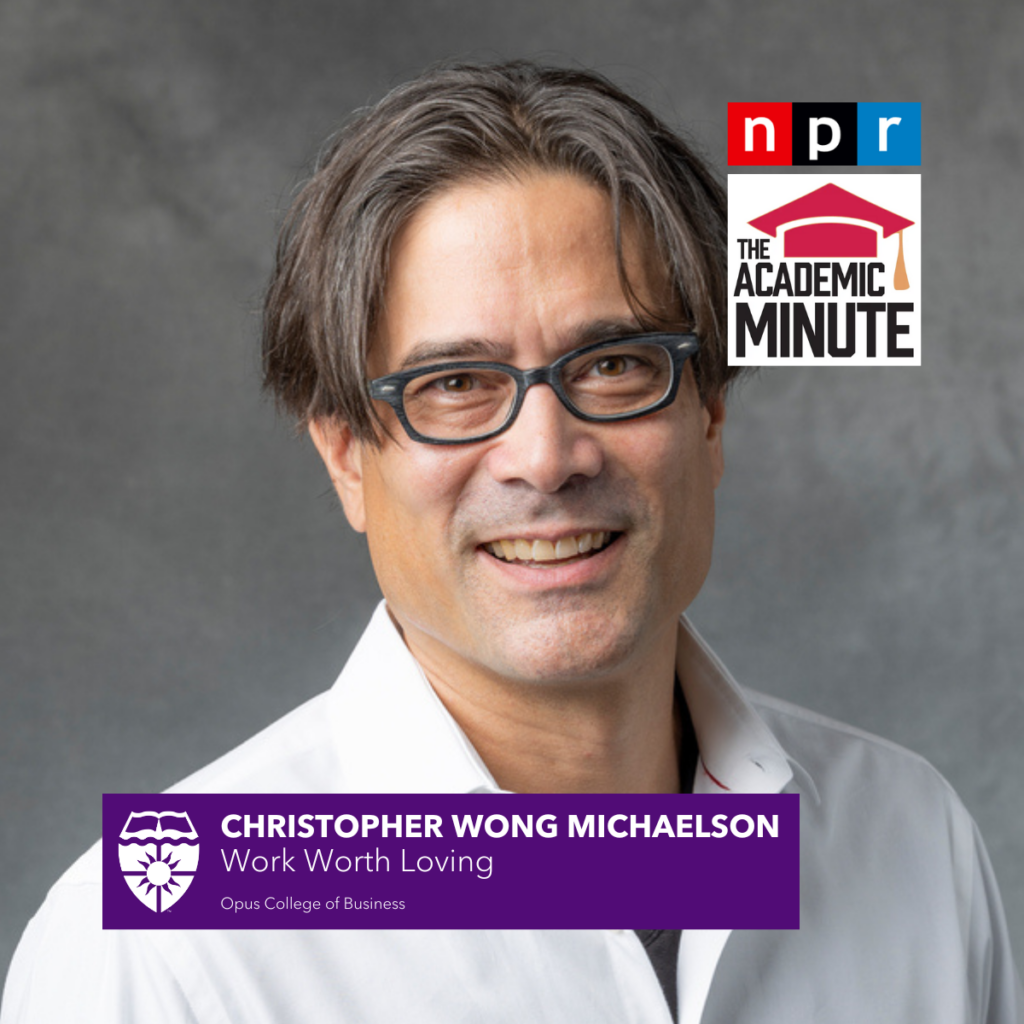
Dr. Christopher Wong Michaelson, Opus distinguished professor and academic director of the Melrose and Toro Company Center for Principled Leadership at the University of St. Thomas, discusses the value in work worth doing, and how it contributes to a life worth living. “For most adults, work determines our daily rhythms, occupies the largest share of our waking hours, and influences our status, standard of living and even our identity,” Michaelson explained. “If work is a fact of life, we might as well make it count.” Through his research, he has learned that work can be worthwhile for people in many ways, and though it may not be possible for everyone to do what they love for a living, society will always need people to do work that’s worth loving.
Danielle Ailts Campeau: Supporting Rural Startup Ecosystems
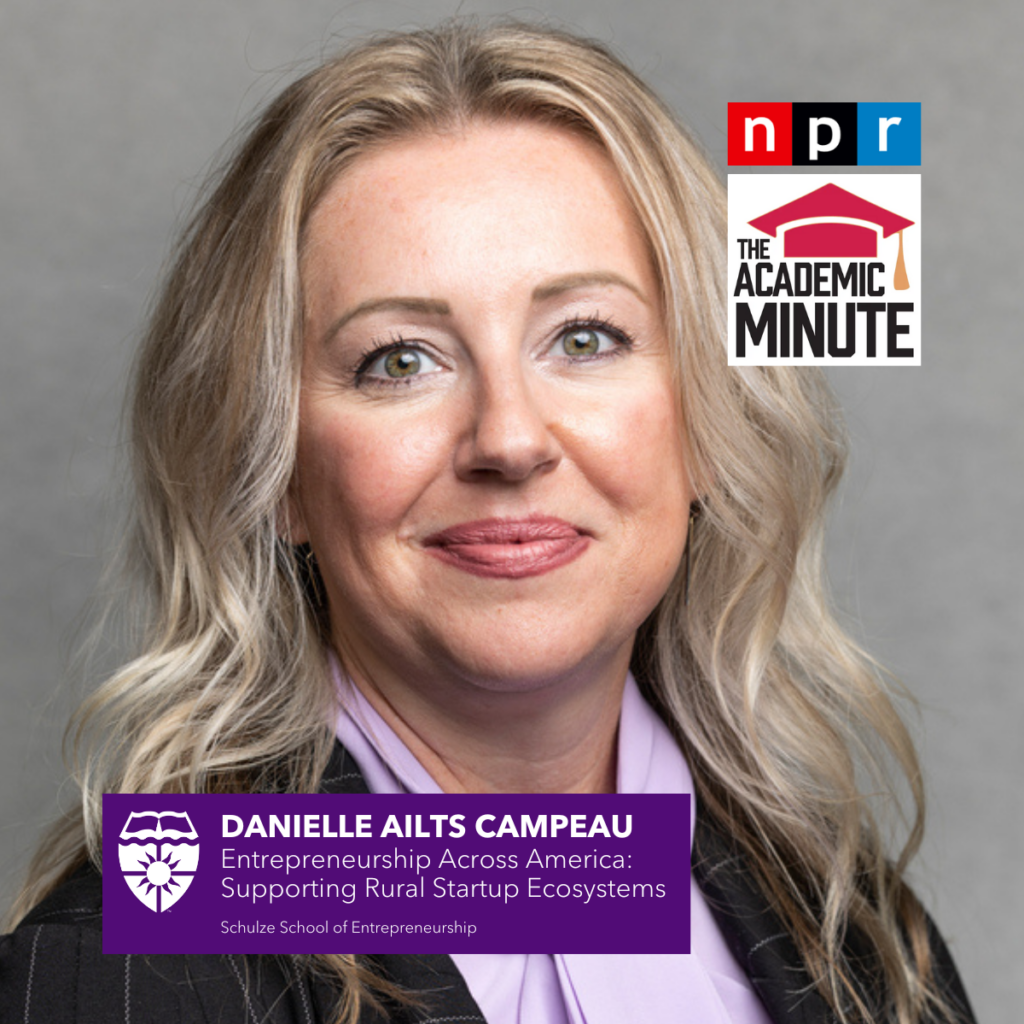
Danielle Ailts Campeau, associate dean of the Schulze School of Entrepreneurship, highlights the challenges entrepreneurs in rural areas face, and how the right support can benefit their communities. In her research, Campeau explores the effect of having small business development centers, a government-sponsored entrepreneurship education program, in rural settings. Her findings revealed that these entrepreneurial programs increased the chances of starting a business and acquiring capital for entrepreneurs in rural areas. “Small business development centers stand as pillars of local economies, offering not just advice, but providing key educational services to help entrepreneurs turn their visions into reality, irrespective of their ZIP codes,” Campeau explained.
Seth Ketron: The Marketing Power of VR
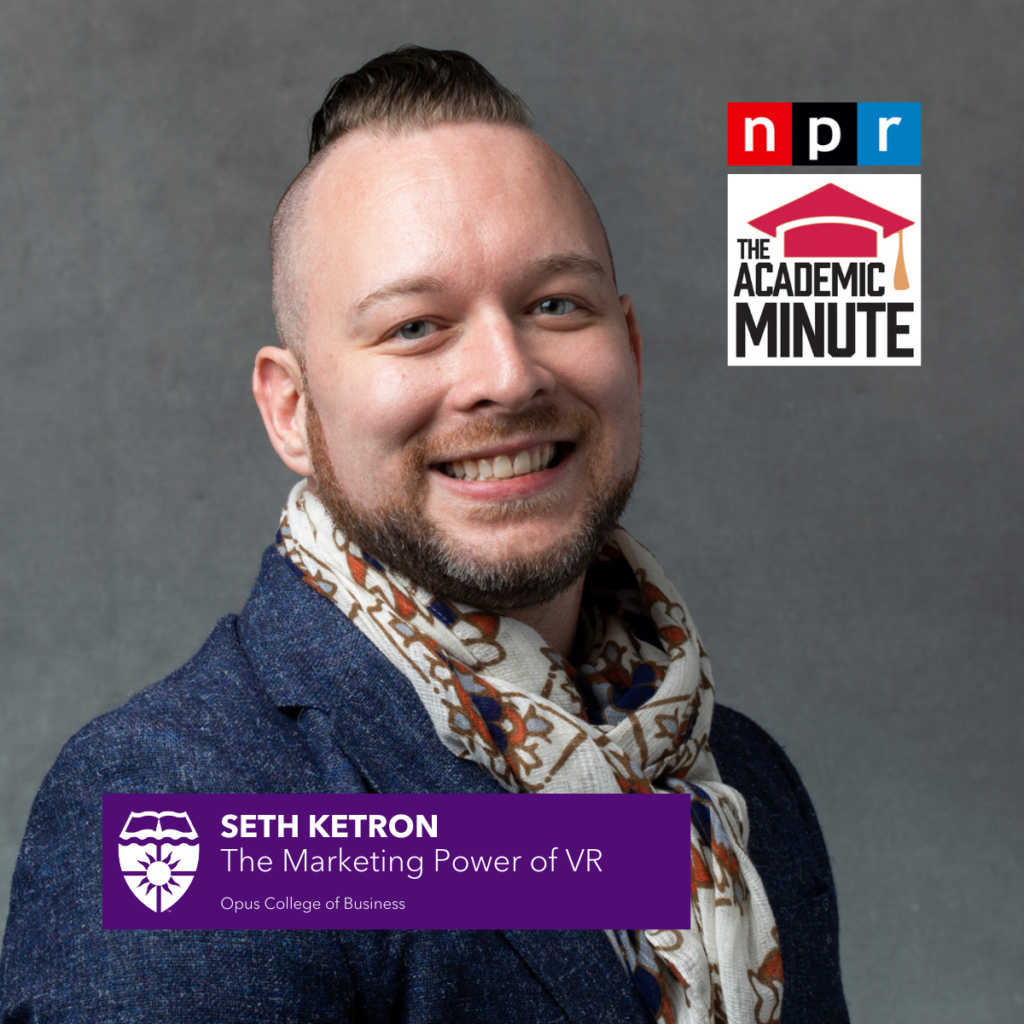
Dr. Seth Ketron, assistant professor of marketing, explains the effects of virtual reality on consumer and societal well-being, and its potential to transform the marketplace. Ketron discusses how research has shown that VR, through immersion and telepresence, can lead to stronger connections with the world and increase agency to make positive change. “VR experiences have offered realistic and tangible representations of environmental and societal issues, which can be effective in making us think about how we can make decisions to better the world around us,” Ketron explained. “So, whether we are hoping to make shopping more immersive and fun, or whether we are hoping to get people to be more sustainable or societally minded, VR can help us get there.”








